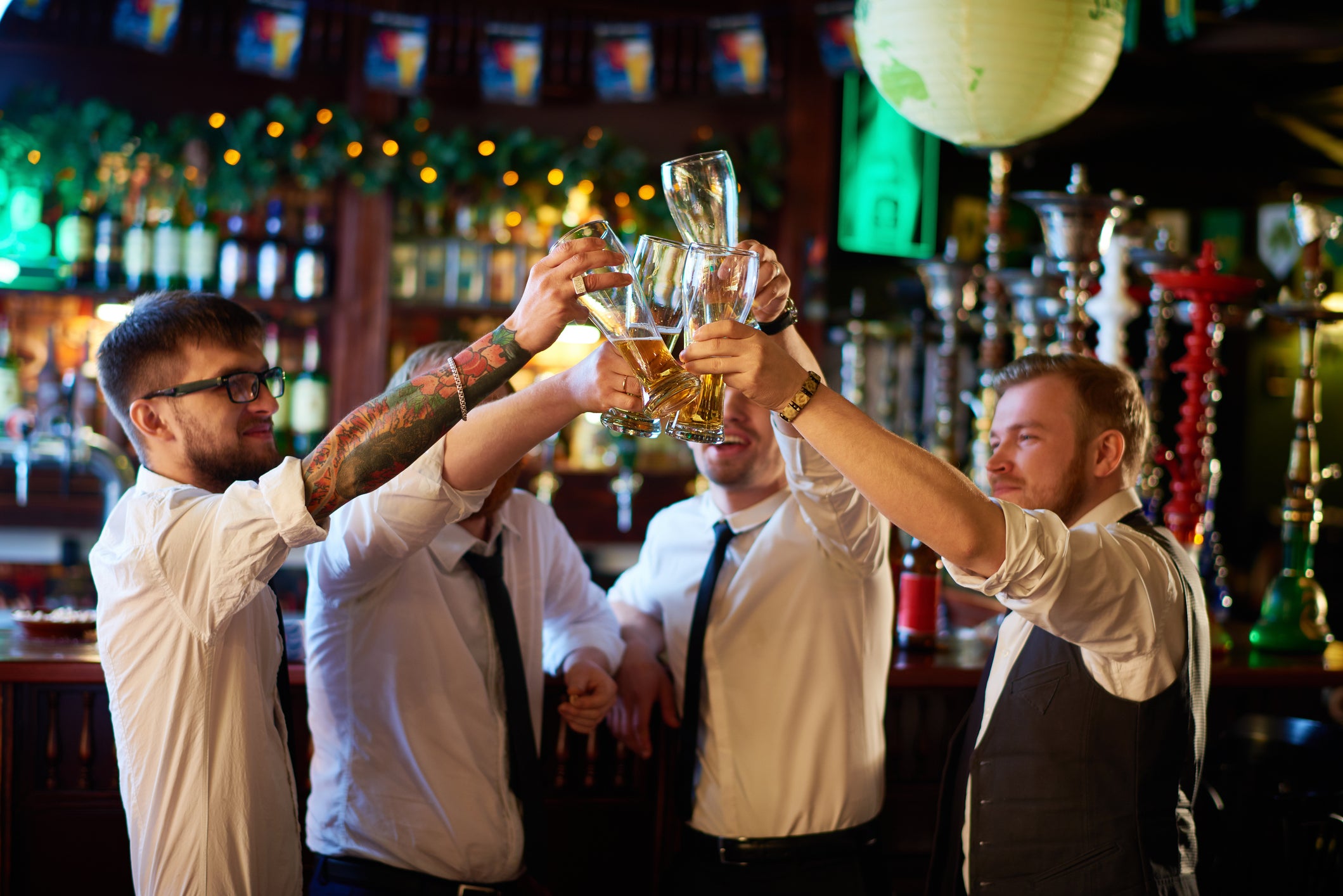More than a third of people have reported calling in sick after saying they were pressured to drink at a work event, a new survey has revealed.
From post-work pints to subsidised bar tabs at company events, alcohol is often embedded in professional life, according to a report by think tank Institute for Public Policy Research (IPPR).
The survey revealed that about a quarter of workers felt pressured to drink when they didn’t want to, and this increased to 38 per cent among younger employees aged 18 to 24.
But employees not only think drinking culture creates cliques and excludes non-drinkers, they also suggest it has real consequences in the workplace.
A third of workers have called in sick in the past year after drinking at work-related events, and 22 per cent reported working hungover. It also didn’t go unnoticed, with 29 per cent of respondents reporting seeing a colleague being tired or sluggish at work.

Heavy drinkers between the ages of 21 and 64 were more than three times as likely to exhibit presenteeism as those who moderately drink. That means although they do turn up for work the next day, they are working at a reduced capacity.
“We often think of alcohol harm as a public health issue, but this research shows it’s a national economic problem,” said Dr Jamie O’Halloran, senior research fellow at IPPR.
“When nearly half of young professionals are calling in sick after workplace drinking, it’s not just a hangover, it’s a productivity crisis. If the government is serious about growth, it needs to take alcohol harm seriously too.”
Young people are the most affected by “workplace alcohol harm”, the survey found. Almost 43 per cent of 18- to 24-year-olds reported calling in sick after drinking at a work-related event.
More than a third of young people also felt pressured to drink to fit in, suggesting workplace drinking continues to drive “cultural pressures”.
One in five respondents thought they had said something they regretted to a colleague, or had spoken about a colleague in a way they regretted. More than a quarter said they had overheard something they should not have.
In more serious cases, more than a third of respondents believed workplace drinking increased the risk of harmful or risky behaviour, and 22 per cent linked it to a greater risk of sexual harassment, bullying or intimidation.
However, workplaces are not doing much to address the issue, with more than half of employees reporting their workplace had not provided any inclusive alternatives, such as booze-free socials. But 73 per cent of those surveyed think employers have a responsibility to address alcohol harm.
“Employers have a huge opportunity here. By shifting away from alcohol-centric cultures and offering real support, they can boost wellbeing, improve performance, and build more inclusive workplaces,” said Sebastian Rees, head of health at IPPR.
“This isn’t about banning drinks – it’s about giving people the choice to thrive without pressure. The evidence is clear: doing nothing is costing us all.”
